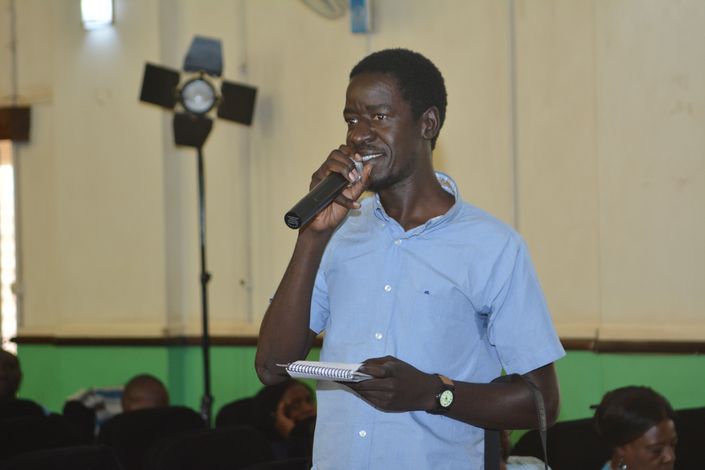
Nasarawa State University: Science Communication Skills for Press Officers
A self-paced course for students at Nasarawa State University, to teach would-be press officers how to communicate science to journalists and the public.
Introduction
If you work with a scientific organisation and one of your roles is to engage with the media or write any content for public consumption, then the Science Communication Skills for Press Officers free online course is for you. It is a self-directed course, meaning you can log in and learn at your own time.
Why this course?
The course will improve your ability to get the media interested in science and present it to them in a language they understand. Upon successful completion of the course you will get a certificate.
What’s included?
The course has 10 short, user-friendly and interactive modules:
Module 1: The basics of scientific research
Module 2: What make news in science
Module 3: How to spot the news in a scientific paper
Module 4: How to interpret research findings
Module 5: How to spot the story in a technical report
Module 6: How to simplify science without compromising its meaning
Module 7: How to simplify numbers and statistics
Module 8: How to make science interesting to journalists
Module 9: How to find and work with science journalists
Module 10: Ethics and controversies in using research evidence
This course is brought to you as part of the Script project, which is made possible by the Robert Bosch Stiftung and implemented by SciDev.Net. For further information visit the Script web page.
For any queries about the course please email [email protected].
Your Instructor
Scientist I Journalist I Science Journalist
Dr. Charles Wendo is a science journalist, veterinary doctor and media trainer. He holds a Master of Arts in Journalism and Communication, a Postgraduate Diploma in Mass Communication, and a Bachelor of Veterinary Medicine degree, all from Makerere University, Uganda.
Course Curriculum
-
StartPre-module assessment
-
StartLearning objective - 1/12
-
StartIntroduction - 2/12
-
StartWhat is research? - part 1 - 3/12
-
StartWhat is research - part 2 - 4/12
-
StartHow research is done - 5/12
-
StartUses of research - 6/12
-
StartTypes of research 7/12
-
StartBasic vs applied research - 8/12
-
StartExperimental vs non-experimental research - 9/12
-
StartQualitative vs quantitative research - 10/12
-
StartDescriptive vs correlational vs explanatory research - 11/12
-
StartIn summary - 12/12
-
StartPost module assessment
-
StartModule completed!
-
StartPre-module assessment
-
StartLearning objective - 1/13
-
StartIntroduction - 2/13
-
StartWhat the media want from science - 3/13
-
StartSo, what is newsworthy in science? - part 1 - 4/13
-
StartSo, what is newsworthy in science? - part 2 - 5/13
-
StartNews values activity 1 - 6/13
-
StartNews values activity 2 - 7/13
-
StartNews values activity 3 - 8/13
-
StartNews values activity 4 - 9/13
-
StartNews values activity 5 - 10/13
-
StartNews values activity 6 - 11/13
-
StartApplication of science news values - 12/13
-
StartSummary - 13/13
-
StartPost module assessment
-
StartModule completed!
